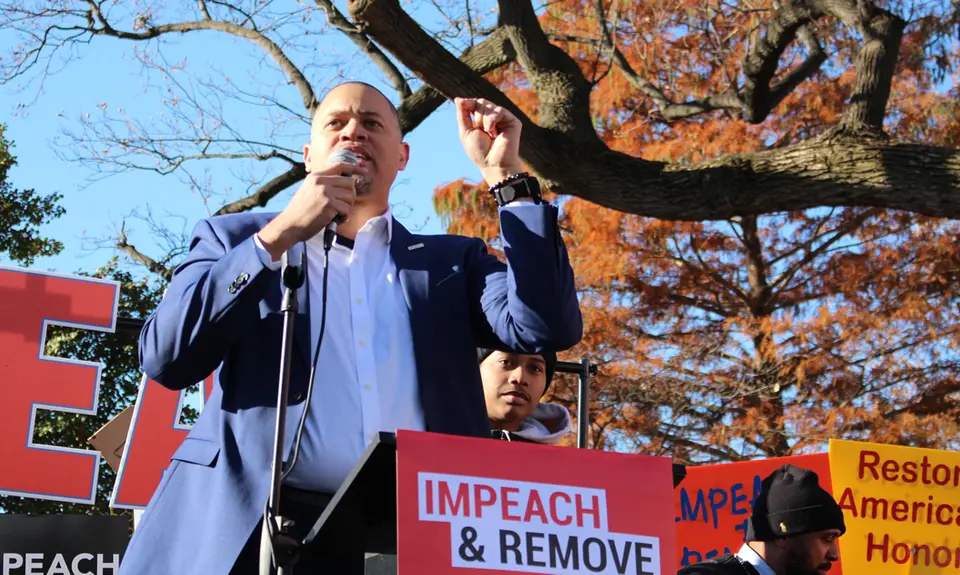The Senate failed to do their job — but ordinary citizens can’t fail to do ours.
This post originally appeared on OtherWords.org.
Hours before the House of Representatives impeached Donald Trump for using the power of his office to sabotage our elections, Rep. John Lewis (D-Ga.) gave a passionate speech on the House floor emphasizing that his colleagues’ duty with their pending votes was far more than political — it was a moral obligation.
“Our nation is founded on the principle that we do not have kings. We have presidents. And the Constitution is our compass,” Lewis said. “When you see something that is not right, not just, not fair, you have a moral obligation to say something. To do something. Our children and their children will ask us, ‘What did you do? What did you say?’”
“For some,” he concluded, “this vote may be hard. But we have a mission and a mandate to be on the right side of history.”
He’s right. Trump admitted to asking a foreign country to interfere in our elections — a direct threat to our democracy. And since the impeachment trial began, advocates have continued to impress upon Congress its constitutional duty to hold Trump accountable to the law.
Instead, Senate Republicans chose to stage a shameful cover-up and protect a lawless, corrupt president.
Our country is at a somber moment in history, but it’s also a pivotal one. Senate Republicans had an obligation to make a choice — a tough choice for some — to check Trump’s abuses of power as president. Regardless of the political implications for their own reelections, they had a constitutional duty to do what’s right.
But they failed to do their jobs — and their votes to cover up Trump’s lawlessness didn’t just excuse interference in our elections, they serve as an endorsement for him to do it again. But as we grapple with the consequences, we must not fall into despair.
Rep. Lewis reminds us not just of our duty to continue to fight for a better country — his story reminds us of the transformational change we can achieve when we do.
As a young Black civil rights leader, Lewis suffered a head injury on Bloody Sunday fighting for the rights of people like me to vote in our elections. Today, the scores of Republican voter suppression schemes to stifle the Black vote show the same kind of cowardice that led them to sign off on the sham Trump trial.
But their failure to do their jobs doesn’t mean we shouldn’t do ours.
Ordinary citizens have a responsibility to make sure our government works for the people, and now is not the time to stand down. That’s what they’re counting on. They’re counting on us to lose hope, to not show up, because they know how much power we have when we fight for justice.
There’s just too much at stake right now to allow our country to be hijacked. We need to keep fighting to protect our democracy.
That means fighting to protect our access to the ballot box and for the right to have every vote count.
It means participating in the census, a critical tool that determines whether we are fairly represented in our voting districts and how much money is invested in our children’s schools and in our families’ health care.
It means standing against Trump’s narrow-minded, discriminatory judicial nominees whose decisions are rolling back our rights at every turn.
It means fighting for our future and for our children’s futures.
So let’s cling to our courage and keep fighting for justice. Let’s continue to remind Trump and his cronies in the Senate that they work for us — and let’s use our voices to remind them we will hold them accountable.
